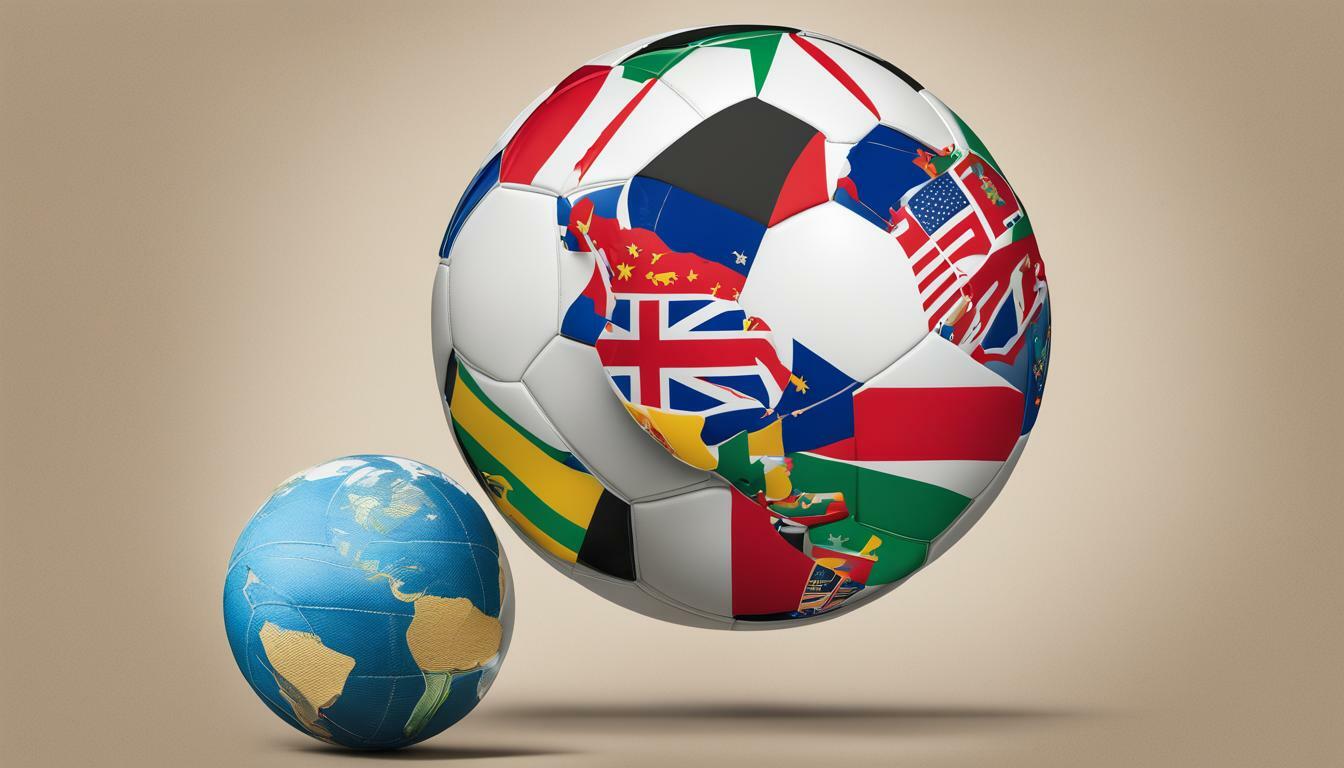Explained: What Does FIFA Stand for in Soccer?
When we hear the term FIFA, we automatically associate it with soccer. But what does FIFA actually stand for? FIFA is an acronym that stands for Fédération Internationale de Football Association, which translates to International Federation of Association Football in English.
FIFA is the global governing body for soccer, responsible for organizing international tournaments, establishing rules and regulations, and promoting the development of the sport worldwide. With over 211 member associations, FIFA is the largest sports organization in the world, representing billions of soccer players and fans.
Key Takeaways:
- FIFA stands for Fédération Internationale de Football Association, which translates to International Federation of Association Football in English.
- FIFA is the global governing body for soccer responsible for organizing international tournaments, establishing rules and regulations, and promoting the development of the sport worldwide.
- FIFA is the largest sports organization in the world with over 211 member associations representing billions of soccer players and fans.
The Origin and Meaning of FIFA
Now that we know what FIFA stands for in soccer, let’s dig deeper into the origin and meaning of the term. FIFA is an acronym that stands for Fédération Internationale de Football Association. In English, this translates to the International Federation of Association Football. The organization was founded on May 21, 1904, in Paris, France, and has been headquartered in Zurich, Switzerland since 1932.
The FIFA abbreviation represents the organization’s goals and purpose. “Football” refers to the sport and “association” refers to the type of football played with a particular set of rules and regulations. “International” signifies that FIFA is a global organization, while “Federation” indicates that it is made up of member associations from different countries that work together towards common objectives.
Since its establishment, FIFA has expanded its reach and influence to become the governing body of soccer worldwide. Today, it consists of 211 member associations from around the globe, making it the largest international sports federation in the world.
FIFA’s Role in Soccer Governance
As we mentioned earlier, FIFA is the global governing body for soccer. This means that it is responsible for overseeing the development and management of the sport on a global scale. FIFA’s role in soccer governance is vast, and it includes many different responsibilities.
One of FIFA’s primary roles is to organize international tournaments, such as the World Cup. These tournaments are held every four years, and they bring together teams from all over the world to compete for the title of world champion. FIFA also organizes other international tournaments, such as the Confederations Cup and the Club World Cup.
In addition to organizing tournaments, FIFA is responsible for establishing rules and regulations for the sport. These regulations cover everything from the size of the field to the number of players on a team. They also include rules for issues such as player transfers, match fixing, and doping.
FIFA also plays a crucial role in promoting the development of soccer worldwide. The organization works to support the growth of the sport in countries where it is not yet well established. This includes providing funding for training programs, building soccer infrastructure, and organizing tournaments and events.
Overall, FIFA’s role in soccer governance is essential to the continued growth and success of the sport. Without a global governing body to oversee the development and management of soccer, there would be chaos and confusion in the sport. FIFA helps to ensure that soccer remains a fair, safe, and enjoyable sport for players and fans alike.
FIFA’s Values and Vision
At FIFA, we believe that soccer has the power to inspire and unite people all around the world. That’s why our organization is founded on a strong set of values and a clear vision for the future of the sport.
The FIFA acronym stands for “Fédération Internationale de Football Association,” which translates to “International Federation of Association Football.” This abbreviation reflects our mission to be the global governing body for soccer and to promote its growth and development worldwide.
One of the core values that guides our work is fair play. We believe that soccer should be played with respect for the rules and for one’s opponents. We also prioritize inclusion, striving to ensure that everyone has the opportunity to participate in and enjoy the sport regardless of their background or circumstances.
Integrity is another value that is central to our organization. We are committed to transparency and accountability, and we work tirelessly to ensure that soccer remains a clean and fair sport to the utmost of our ability.
Looking to the future, our vision is to make soccer the most popular sport in the world and to use its power to effect positive change in society. We want to ensure that the sport is accessible to all and that it remains a source of joy and inspiration for generations to come.
At FIFA, we are proud of our values and vision, and we are committed to upholding them in everything we do. We believe that soccer has the power to make the world a better place, and we are dedicated to realizing that vision through our work as the global governing body for the sport.
Conclusion
In conclusion, we have explored the meaning and significance of FIFA in soccer. We now know that FIFA stands for Fédération Internationale de Football Association, and it serves as the global governing body for soccer. Its responsibilities include organizing international tournaments, establishing rules and regulations, and promoting the development of the sport worldwide.
We have also learned about the origin and meaning of the term FIFA, which represents the organization’s goals and purpose. Additionally, we have discussed FIFA’s values and vision, which include fair play, respect, integrity, and inclusivity. We see that these principles drive FIFA’s actions and shape the future of soccer.
By understanding what FIFA stands for in soccer, we can appreciate the organization’s impact on the sport and its role in shaping the soccer landscape globally. The significance of FIFA in soccer cannot be overstated, and its efforts to promote these values within the sport will inspire future generations to uphold these principles.
Therefore, we should all continue to support and celebrate FIFA’s efforts to advance the sport of soccer, both on and off the field.
FAQ
Q: What does FIFA stand for in soccer?
A: FIFA stands for Fédération Internationale de Football Association, which translates to International Federation of Association Football.
Q: What is the significance of FIFA in soccer?
A: FIFA is the global governing body for soccer and is responsible for organizing international tournaments, establishing rules and regulations, and promoting the development of the sport worldwide.
Q: What is the origin and meaning of FIFA?
A: The term FIFA is an abbreviation of the organization’s French name, Fédération Internationale de Football Association. It was established in 1904 and represents the international governing body for the sport.
Q: What is FIFA’s role in soccer governance?
A: FIFA’s role as the governing body of soccer involves overseeing the sport’s operations on a global scale. This includes organizing major tournaments, ensuring compliance with rules and regulations, and promoting the growth and development of the sport.
Q: What are FIFA’s values and vision?
A: FIFA is guided by values such as fair play, respect, integrity, and inclusivity. The organization aims to promote these values within the sport and has a vision of a world where soccer is played and enjoyed by all, while contributing to social and human development.






